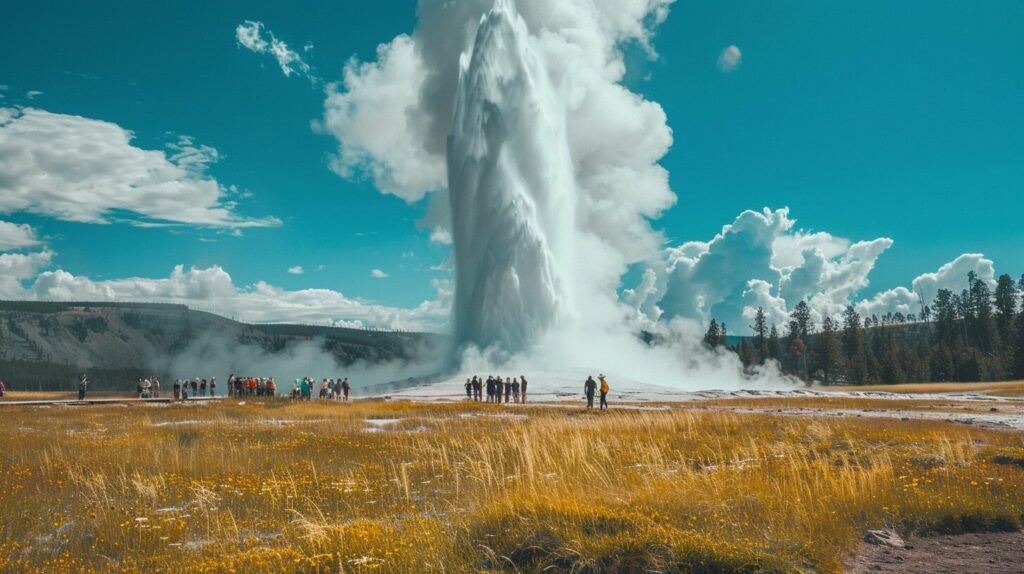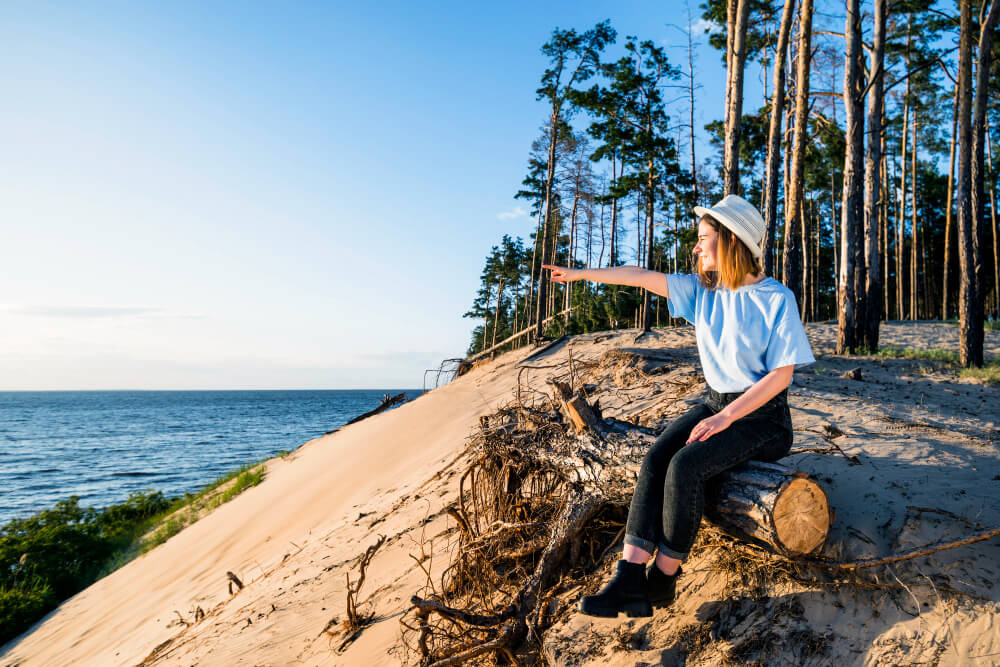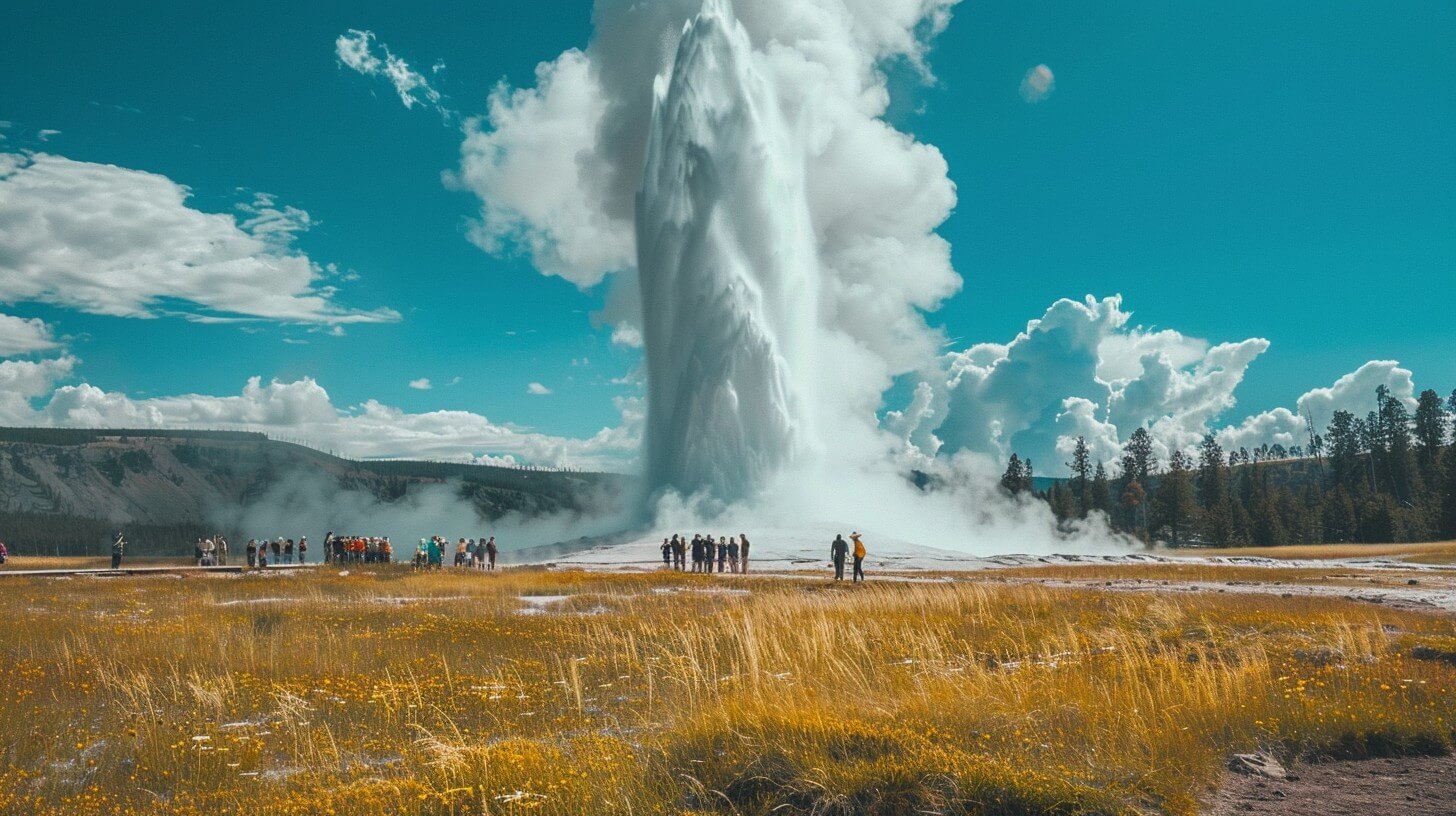
Are you feeling overwhelmed by the hustle and bustle of daily life? Do you yearn for a peaceful retreat where you can recharge and reconnect with Reconnect with Nature? If so, you’re not alone.
Many people are seeking ways to escape their busy routines and immerse themselves in the tranquility of the natural world.
Here’s how you can make the most of your next vacation by reconnecting with nature.
Common Questions and Concerns
Before diving into the tips, let’s address some common questions and concerns:
- Where should I go toReconnect with Nature?
- What activities can help me feel more connected to the environment?
- How can I balance relaxation with adventure?
- What should I pack for a nature-focused vacation?
- How can I make my trip eco-friendly?
Choosing Your Destination
When it comes to Reconnect with Nature, the destination is key.
Look for places known for their natural beauty and outdoor activities.
Some popular options include:
National Parks
National parks offer stunning landscapes and a variety of outdoor activities.
Whether you’re interested in hiking, camping, or wildlife watching, national parks have something for everyone.
Consider visiting parks like:
- Yellowstone National Park: Famous for its geothermal features, including the iconic Old Faithful geyser, Yellowstone offers diverse wildlife and scenic vistas.
- Yosemite National Park: Renowned for its towering waterfalls, giant sequoias, and majestic granite cliffs like El Capitan and Half Dome.
- Great Smoky Mountains National Park: Known for its mist-covered mountains, rich biodiversity, and numerous hiking trails.
Relatable Example
Last summer, my family and I visited Yosemite. We spent our days hiking to waterfalls, marveling at the giant sequoias, and watching rock climbers scale El Capitan.
Evenings were spent around the campfire, roasting marshmallows and stargazing. It was a perfect mix of adventure and relaxation.
Coastal Retreats
If you prefer the beach, coastal destinations provide a perfect blend of relaxation and nature. Places like:
- The Oregon Coast: Offers rugged cliffs, sandy beaches, and charming coastal towns. Perfect for beachcombing, tide-pooling, and whale watching.
- Outer Banks, North Carolina: Known for its wide beaches, historic lighthouses, and opportunities for water sports like kayaking and kiteboarding.
- Florida Keys: Offers crystal-clear waters, vibrant coral reefs, and abundant marine life. Ideal for snorkeling, diving, and sailing.
Relatable Example
My partner and I recently spent a week in the Florida Keys.
We snorkeled in the crystal-clear waters, encountering colorful fish and even a few friendly sea turtles.
Afternoons were spent lounging on the beach, and we ended each day with a sunset sail. It was the perfect way to unwind and reconnect with each other and nature.
Mountain Escapes
For those who love the mountains, destinations such as:
- The Rockies: Spanning several states, the Rockies offer majestic peaks, pristine lakes, and abundant wildlife. Ideal for hiking, skiing, and mountain biking.
- The Appalachians: Known for their rolling hills, scenic byways, and vibrant fall foliage. Great for hiking, camping, and exploring charming mountain towns.
- The Sierra Nevada: Home to Lake Tahoe, Yosemite, and Kings Canyon, offering a variety of outdoor activities from boating to rock climbing.
Relatable Example
A few years ago, I went on a solo trip to the Rockies.
I spent my days hiking challenging trails, fishing in mountain streams, and photographing wildlife.
The sense of accomplishment and the peace I found in the mountains were truly life-changing.
Activities to Connect with Nature
Engaging in outdoor activities is a fantastic way to immerse yourself in Reconnect with Nature.
Here are some ideas:
Hiking and Walking
Hiking is one of the best ways to explore natural surroundings. Choose trails that match your fitness level, and don’t forget to bring a map, plenty of water, and a camera to capture the beauty around you.
- Short, easy hikes: Perfect for beginners or those looking for a leisurely stroll. Many parks and natural areas offer trails that are under three miles with minimal elevation gain.
- Moderate hikes: For those looking for a bit more of a challenge, consider trails that are between three and six miles with some elevation change.
- Strenuous hikes: For experienced hikers, longer trails with significant elevation gain can offer a rewarding challenge and breathtaking views.
Relatable Example
During a trip to the Great Smoky Mountains, my friends and I hiked the Alum Cave Trail.
It was a moderate hike with stunning views of the mountains and valleys.
The sense of accomplishment we felt when we reached the summit was indescribable.
Camping
Camping allows you to fully immerse yourself in nature.
Whether you prefer a tent, a camper, or a rustic cabin, spending the night outdoors can be a rejuvenating experience.
Make sure to pack essentials like a sleeping bag, a first-aid kit, and plenty of food.
- Tent camping: Offers a closer reconnect with Nature. Falling asleep to the sounds of the forest and waking up with the sunrise is a unique experience.
- RV or camper: Provides more comfort and amenities while still allowing you to stay in natural surroundings.
- Cabin rentals: Offer the comforts of home with the added benefit of being in a scenic location.
Relatable Example
One of my favorite camping trips was in Shenandoah National Park.
We pitched our tent near a bubbling brook, cooked meals over a campfire, and spent our days hiking and exploring.
The simplicity and beauty of the experience were unforgettable.
Wildlife Watching
Take some time to observe the local wildlife. Whether it’s birdwatching, spotting deer, or even catching a glimpse of a bear from a safe distance, wildlife watching can be both relaxing and exciting.
- Birdwatching: Bring a pair of binoculars and a field guide to help identify different species.
- Mammal spotting: Early mornings and late evenings are the best times to see animals like deer, elk, and moose.
- Marine life: If you’re near the coast, keep an eye out for dolphins, seals, and sea birds.
Relatable Example
During a trip to Yellowstone, we joined a wildlife tour at dawn.
We saw a herd of bison grazing in the early morning light, watched a family of elk cross a river, and even spotted a lone wolf in the distance.
It was an awe-inspiring experience that brought us closer to the natural world.
Water Activities
If you’re near a body of water, try activities like kayaking, paddleboarding, or fishing.
These activities provide a peaceful way to enjoy nature while being active.
- Kayaking and canoeing: Explore rivers, lakes, and coastal waters. These activities can be as relaxing or as adventurous as you like.
- Paddleboarding: A great way to enjoy the water and get a full-body workout. It’s also a unique perspective for wildlife watching.
- Fishing: Whether you’re fly-fishing in a mountain stream or casting from a boat, fishing can be a relaxing and rewarding way to connect with nature.
Relatable Example
On a trip to the Adirondacks, my partner and I rented kayaks and spent a day paddling on a tranquil lake.
We spotted loons, watched an eagle soar overhead, and even caught a glimpse of a beaver swimming near its lodge.
The quiet and solitude of the experience were incredibly rejuvenating.
Packing Essentials
To make the most of your nature-focused vacation, packing the right gear is crucial.
Here’s a basic packing list:
- Comfortable clothing and sturdy footwear: Dress in layers to adapt to changing weather conditions. Moisture-wicking fabrics and sturdy hiking boots or shoes are essential.
- Navigation tools: Bring a map, compass, or GPS device to help you find your way, especially if you’re heading off the beaten path.
- First-aid kit: Be prepared for minor injuries with a basic first-aid kit. Include items like bandages, antiseptic wipes, pain relievers, and any personal medications.
- Sunscreen and insect repellent: Protect yourself from the elements. Choose a broad-spectrum sunscreen with SPF 30 or higher, and a repellent that contains DEET or another effective ingredient.
- Reusable water bottle and snacks: Stay hydrated and energized. Bring plenty of water, and pack snacks like trail mix, fruit, and energy bars.
- Camera or smartphone: Capture your adventures and the beauty around you. A good camera can help you document your trip and share it with others.
- Eco-friendly toiletries: Choose biodegradable soaps and shampoos to minimize your impact on the environment.
- Camping gear: If you’re camping, don’t forget your tent, sleeping bag, and other essentials. Make sure your gear is suitable for the climate and conditions of your destination.
Eco-Friendly Travel Tips
Respecting the environment is essential when reconnecting with nature.
Here are some tips for eco-friendly travel:
Leave No Trace
One of the most important principles of eco-friendly travel is to leave no trace.
This means:
- Pack out all your trash: Don’t leave litter behind. Bring a bag to collect your waste and dispose of it properly.
- Minimize campfire impact: Use established fire rings, keep fires small, and make sure they are completely extinguished before you leave.
- Respect wildlife: Observe animals from a distance, don’t feed them, and keep your campsite clean to avoid attracting wildlife.
Use Eco-Friendly Products
- Biodegradable soaps and shampoos: Choose products that break down naturally and don’t harm the environment.
- Reusable containers:Use reusable containers for food and drinks to minimize plastic waste. Opt for metal or glass containers and carry a reusable water bottle to stay hydrated throughout your trip.
Choose Sustainable Accommodations
When selecting where to stay, look for accommodations that prioritize sustainability.
This might include:
- Eco-friendly hotels or lodges: Many places are committed to reducing their environmental impact through green practices, such as solar energy use, recycling programs, and organic amenities.
- Camping: Consider camping in designated areas that have minimal impact on the environment. National parks often have campgrounds that practice sustainable management.
- Local stays: Look for vacation rentals or bed-and-breakfasts that source their products locally, reducing the carbon footprint associated with food and supplies.
Relatable Example
During our visit to the Oregon Coast, we chose to stay in a small eco-lodge that used solar panels and provided organic meals.
The lodge encouraged us to explore nearby trails and beaches, promoting a deep appreciation for the beautiful surroundings.
Knowing we were supporting a sustainable business added to the overall enjoyment of our trip.
Travel Off-Peak
Visiting popular destinations during peak times can lead to overcrowding and strain on local resources.
Consider traveling during the shoulder seasons (the time between peak and off-peak seasons) for a more tranquil experience.
You’ll find fewer crowds, making it easier to enjoy the natural beauty and engage in activities without feeling rushed.
Support Local Conservation Efforts
Consider participating in local conservation initiatives or donating to organizations that protect the natural areas you’re visiting.
Many parks and natural areas offer volunteer opportunities where you can help with trail maintenance, habitat restoration, or wildlife monitoring.
Relatable Example
While visiting a national park, we learned about a volunteer program that involved helping to maintain hiking trails.
We spent a day working alongside park rangers and other volunteers, gaining a deeper understanding of the ecosystem and the importance of preserving it.
It was a rewarding experience that made our trip feel even more meaningful.

Balancing Relaxation and Adventure
While it’s essential to engage with nature actively, it’s equally important to take time to relax and recharge.
Here are some tips to strike that balance:
Plan for Downtime
Don’t over-schedule your itinerary. Plan for some downtime where you can simply enjoy the surroundings.
This might include lounging by a lake, reading a book in a hammock, or taking a leisurely stroll on the beach.
Engage in Mindfulness Practices
Incorporate mindfulness practices into your trip to enhance your connection with nature. Consider:
- Meditation: Find a quiet spot in nature and spend some time meditating. Focus on your breath and the sounds around you, allowing yourself to be fully present.
- Journaling: Keep a travel journal where you document your thoughts, feelings, and experiences. Writing can help you reflect on your trip and deepen your connection to nature.
- Photography: Use photography as a way to appreciate the beauty of your surroundings. Capture not just landscapes but also the small details, like the texture of bark or the color of flowers.
Relatable Example
During my recent trip to a national park, I set aside an hour each morning for quiet reflection by the river.
I meditated while listening to the sound of the flowing water, allowing the tranquility of the moment to wash over me.
This simple practice transformed my vacation into a more restorative experience.
Engaging with the Community
Connecting with local communities can enhance your vacation experience and provide deeper insights into the culture and environment.
Here are some ways to engage:
Participate in Local Tours
Join guided nature tours led by locals who are passionate about their environment. These tours can offer unique perspectives on the area’s history, ecology, and wildlife.
- Nature walks: Guided walks often include educational components, such as identifying plants, animals, and ecosystems.
- Cultural experiences: Some tours may include cultural elements, such as traditional cooking classes or crafts that utilize local materials.
Relatable Example
While visiting a coastal town, I joined a guided beach walk focused on local marine life.
The guide shared fascinating stories about the area’s ecology and taught us how to identify different shellfish and sea plants.
It was an educational experience that deepened my appreciation for the beach and its ecosystem.
Shop Local
Support local artisans and businesses by purchasing handmade goods and products unique to the area.
This not only helps the local economy but also provides you with memorable souvenirs from your trip.
- Farmers’ markets: Visit local farmers’ markets to sample fresh produce and regional specialties. Many vendors also sell handmade crafts and goods.
- Artisan shops: Look for shops that sell products made by local artists, such as pottery, jewelry, or artwork inspired by the surrounding nature.
Relatable Example
During a trip to the Outer Banks, I spent an afternoon at a local farmers’ market, where I sampled fresh produce, homemade jams, and local seafood.
I left with a bag full of delicious treats and a few handmade items that served as beautiful reminders of my trip.
Inviting Reader Interaction
As you explore ways to Reconnect with Nature, I encourage you to share your thoughts and experiences in the comments below.
What destinations have helped you feel more Reconnect with Nature? What activities do you find most rejuvenating? Have you adopted any eco-friendly practices while traveling?
Sharing your experiences can inspire others and create a sense of community among those looking to embrace the beauty of the natural world.
Call to Action
If you found these tips helpful, consider sharing this guide with friends or on social media.
Your journey to reconnect with nature can inspire others to do the same! Use the hashtag #ReconnectWithNature to join the conversation.
Conclusion
Reconnecting with nature on your next vacation can be a transformative experience.
By choosing the right destination, engaging in outdoor activities, practicing mindfulness, and supporting local communities, you can immerse yourself in the natural world and emerge feeling refreshed and rejuvenated.
So pack your bags, leave behind the chaos of daily life, and embark on a journey that nourishes your soul and deepens your connection to the planet.
Remember, nature is waiting for you—embrace it!
Answer
What is forest bathing and how can it help me reconnect with nature?
Forest bathing, or shinrin-yoku, involves immersing yourself in a forest environment to enhance your well-being.
Spending just 120 minutes a week in nature can lower cortisol levels and improve mental and physical health.
This practice encourages mindfulness and a deeper connection to the natural world, making it easier to appreciate the beauty around you.
How can I incorporate mindfulness into my outdoor experiences?
Practicing mindfulness outdoors can enhance your reconnect with Nature.
This involves being present and aware of your surroundings while engaging in activities like walking meditation or simply sitting quietly in a natural setting.
Keeping a nature journal to document your thoughts and observations can further deepen this experience.
What are some simple activities I can do to connect with nature while traveling?
Simple activities include leisurely walks in local parks or forests, participating in ecological programs, or choosing scenic accommodations like cabins or glamping sites.
Engaging in outdoor skills such as hiking, kayaking, or birdwatching can also provide enriching experiences that foster a deeper relationship with nature.
Why is it beneficial to spend time near water?
Water has a calming effect and symbolizes life. Spending time near oceans, rivers, or lakes can restore balance and promote mental well-being.
The sounds of water and the natural beauty surrounding it contribute to feelings of peace and connection to the earth, enhancing your overall vacation experience.
How can I make my next vacation more eco-friendly while Reconnect with Nature?
To make your vacation eco-friendly, consider participating in local conservation projects, opting for sustainable accommodations, and practicing responsible travel habits.
Engaging in activities like organic farming or eco-tourism not only helps the environment but also allows for meaningful interactions with nature and local communities.
